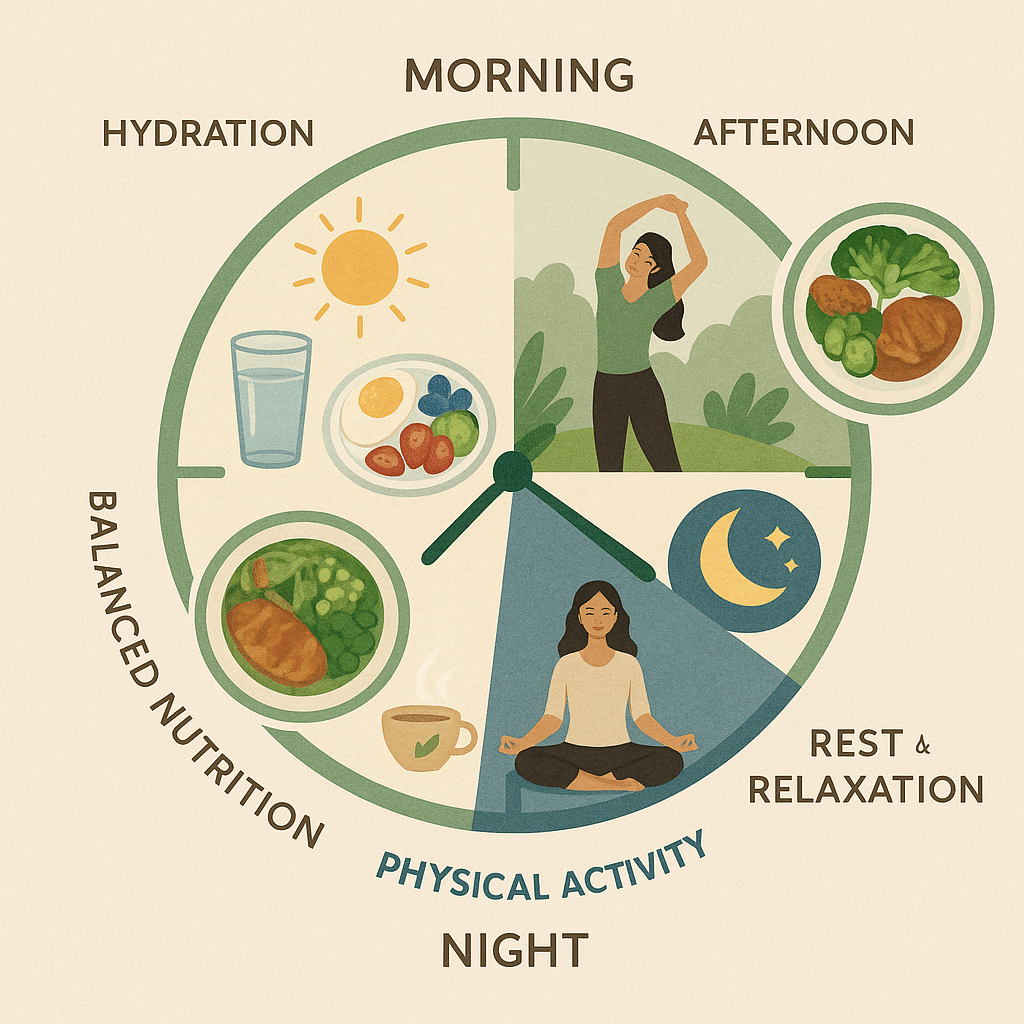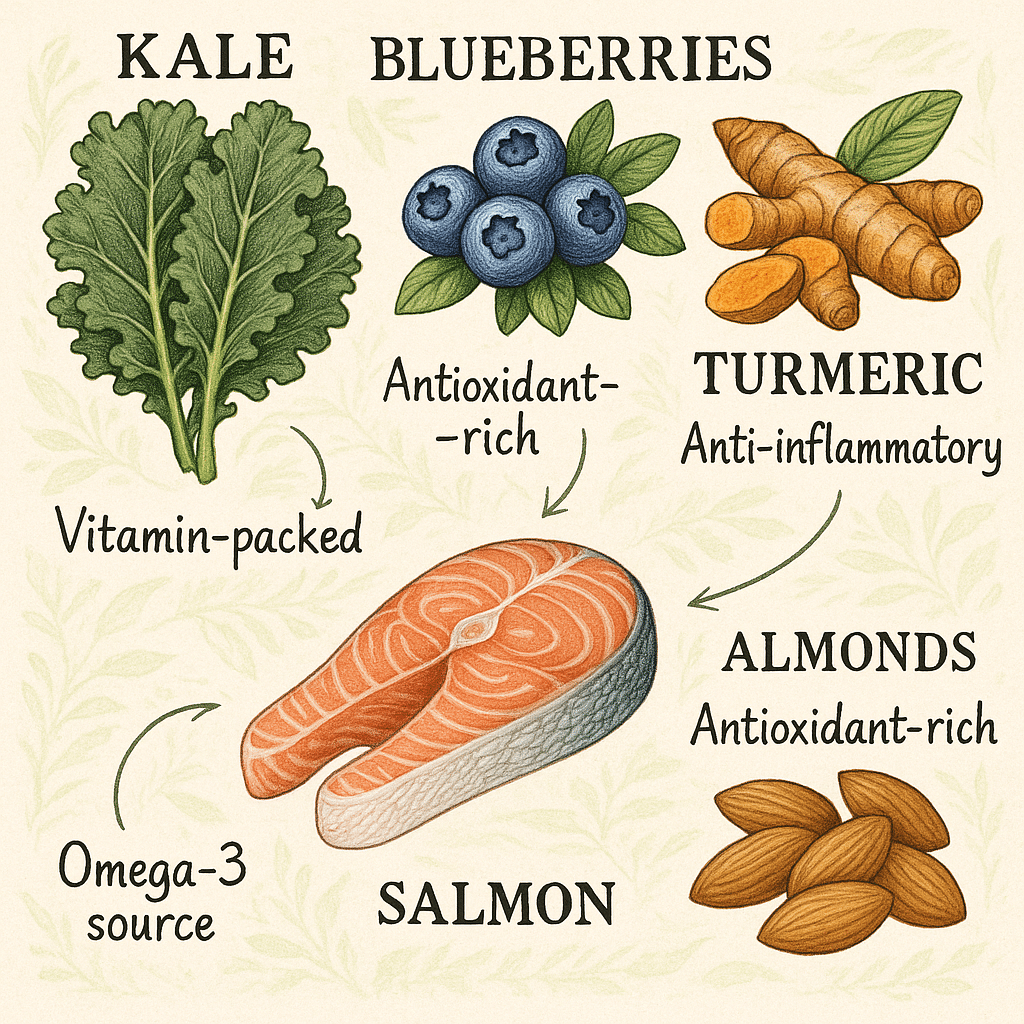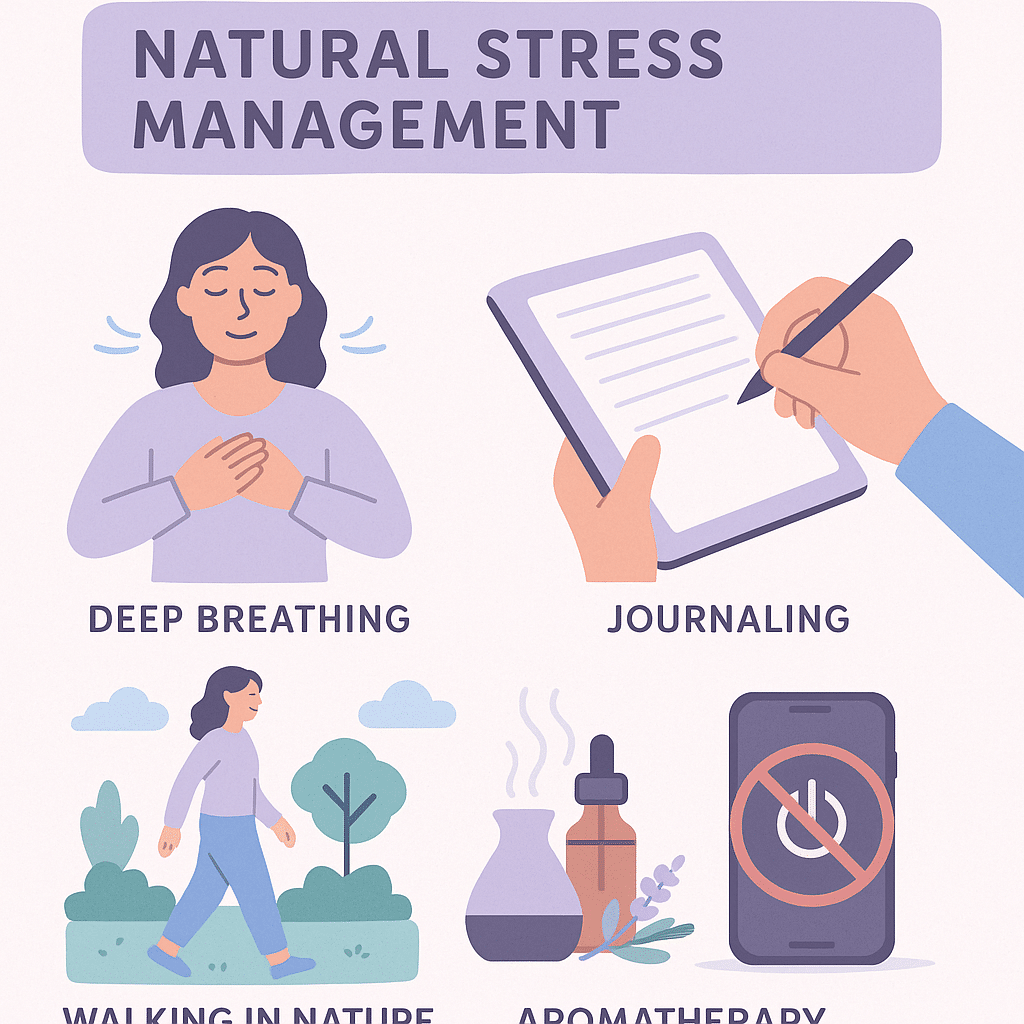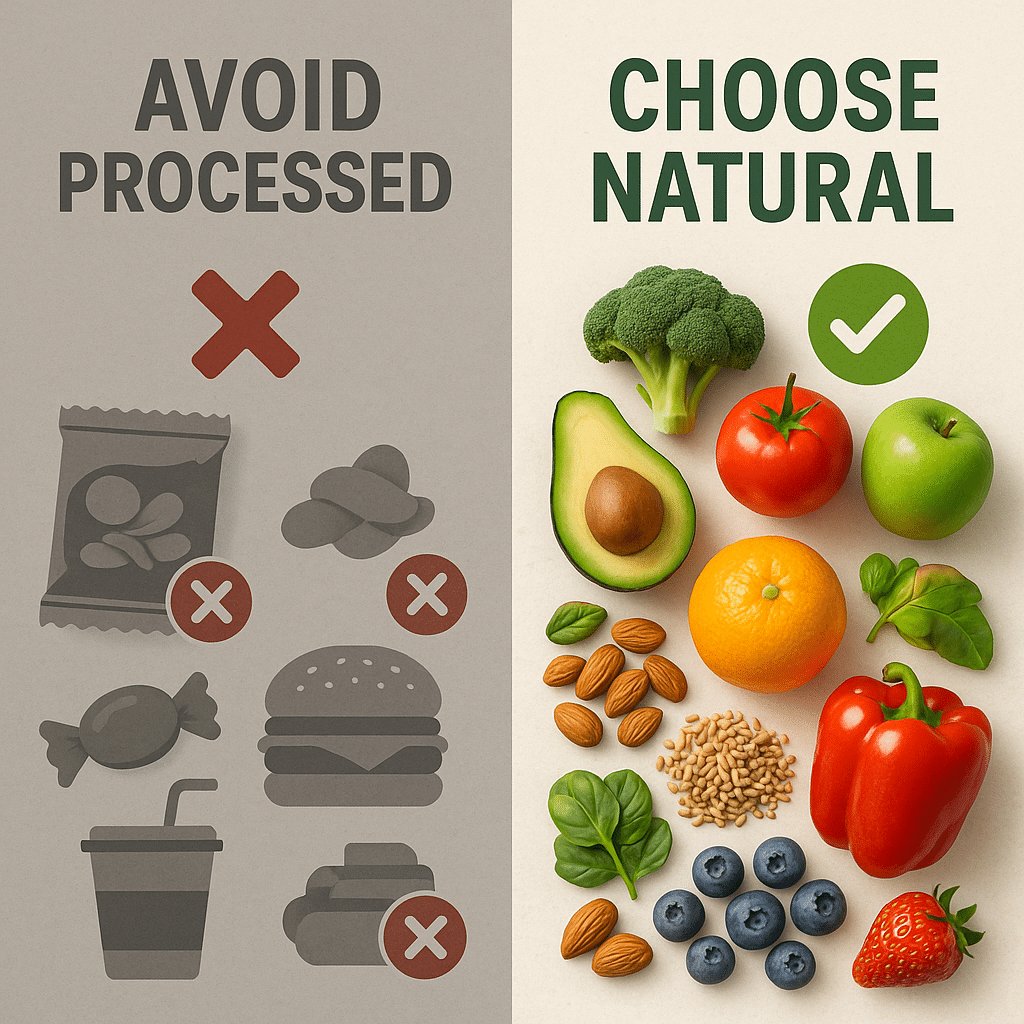Introduction

Hello there! If you’re reading this, you’re likely a health-conscious adult eager to embrace a more natural approach to your well-being. I completely get it — navigating the vast sea of health advice can feel overwhelming, especially when you’re looking for genuine, natural wellness tips that truly work. That’s why I’ve put together this comprehensive guide filled with 15 essential health and wellness tips for natural living, aimed at helping you build a sustainable, balanced lifestyle.
In the article ahead, we’ll explore everything from crafting a personalized wellness routine and embracing nutrition with whole foods, to managing stress naturally and boosting your immunity with simple remedies. We’ll also dive into the importance of physical activity, quality sleep, and preventive healthcare, ensuring your mental and emotional health get the attention they deserve.
So, whether you’re just starting out with holistic health or looking to fine-tune your daily habits, let’s dive into practical, evidence-based advice that you can easily incorporate into your life. Trust me, these health and wellness tips will not only uplift your body but also nurture your mind and spirit, helping you thrive naturally.
Understanding Holistic Health and Wellness

The Connection Between Physical Fitness and Mental Health
When we talk about natural health and wellness tips, one of the first things to understand is how deeply intertwined physical fitness and mental health really are. You might’ve heard the phrase, “A healthy body equals a healthy mind,” and believe me, it’s more than just a catchy saying.
Take for example aerobic exercises like walking, swimming, or cycling. These activities don’t just strengthen your heart and muscles — they also boost neurotransmitters like serotonin and dopamine, which elevate mood and reduce anxiety. Studies even show that regular physical activity can reduce symptoms of depression and improve cognitive functions such as memory and concentration.
Importantly, physical activity encourages the production of brain-derived neurotrophic factor (BDNF), often called “fertilizer for the brain,” because it helps neurons grow and connect. So, by engaging in consistent physical fitness, you’re essentially investing in your mental wellness.
Benefits of Integrating Natural Wellness Into Daily Life
Integrating natural wellness strategies isn’t about making sudden, drastic changes. It’s about a gentle blend of habits, from mindful eating and hydration to stress management and restorative sleep. When you embrace this holistic approach, you start to experience benefits on multiple levels:
- Enhanced Energy Levels: Natural wellness nourishes your body with nutrient-dense foods and good hydration, giving you sustainable energy.
- Improved Immunity: Combining nutrition with stress reduction techniques helps your immune system fight off illnesses more effectively.
- Emotional Stability: Mindfulness and movement reduce cortisol (the stress hormone), fostering emotional balance.
- Longevity: Adopting these habits can lower the risk of chronic diseases, helping you live longer and more vibrantly.
I’ve often found the beauty of natural wellness lies in its simplicity — small daily choices that compound into life-changing results.
Crafting Your Personalized Wellness Routine

How to Set Realistic and Sustainable Health Goals
One of the biggest misconceptions about health and wellness is that you have to overhaul your entire life overnight. That’s simply not true, and honestly, it’s a recipe for burnout. Instead, setting achievable goals tailored to your unique lifestyle is key.
Start with clear, measurable objectives—like drinking eight glasses of water daily or walking 30 minutes three times a week. Track your progress but stay flexible. If you miss a day, don’t beat yourself up; just recalibrate and keep going. After all, wellness is a marathon, not a sprint.
Identifying Your Unique Wellness Needs
Every individual is different, and your wellness routine should reflect that. For instance, some people thrive on early morning yoga sessions, while others prefer evening walks or quiet meditation at night. Consider your work schedule, family demands, energy patterns, and stress triggers when designing your plan.
Want to know a handy tip? Keep a wellness journal for a week or two. Note how you feel physically and emotionally after various activities, what foods energize you versus drain you, and when you feel most restful versus restless. Over time, this insight will help you pinpoint what truly supports your well-being.
Incorporating Self-Care Practices Into Busy Schedules
Self-care often gets overlooked when life gets busy. But here’s the thing: it’s not selfish — it’s essential. Even if your days are packed, sprinkling small moments of care can make a big difference. This could be a 5-minute deep breathing break, a quick stretch, or enjoying your favorite herbal tea without distractions.
Try batch scheduling your self-care, maybe Sunday afternoons are dedicated to prepping nutritious meals and Friday nights to relaxation rituals. Prioritize these moments as non-negotiable appointments with yourself.
Nutrition and Wellness Tips for Healthy Living

Embracing a Balanced Diet with Whole Foods
Nutrition forms the cornerstone of natural health and wellness tips. Embracing a diet rich in whole foods means prioritizing fresh fruits, vegetables, lean proteins, whole grains, nuts, and seeds over processed junk. These nutrient-dense foods provide vitamins, minerals, antioxidants, and fiber essential for optimal health.
Consider seasonal, local produce, which often retains higher nutrient levels. Plus, cooking at home lets you control ingredients and flavors. I personally love incorporating colorful veggies into every meal—they’re not only nourishing but also brighten up your plate and mood.
Natural Remedies to Boost Immunity
Superfoods and Herbal Supplements
When it comes to boosting immunity naturally, superfoods and herbal supplements can be powerful allies. Foods like turmeric, garlic, ginger, and berries are renowned for their anti-inflammatory and antioxidant properties. You can use turmeric in teas or cooking, add raw garlic to your dressings, or enjoy a berry smoothie packed with vitamins.
Herbal supplements like echinacea, elderberry, and ginseng also support immune resilience. Just remember to choose reputable brands with transparent sourcing and standardized extracts — for instance, Nature’s Way and Gaia Herbs are trusted names in the natural supplement world.
Hydration and Its Role in Health and Wellness
Never underestimate the power of plain, pure water. Hydration is fundamental to every bodily function, from cellular repair to toxin elimination. Adequate water intake also supports digestion, boosts energy, and sharpens cognitive function.
Natural hydration tips for better health include drinking water consistently throughout the day rather than gulping down large amounts sporadically. Adding slices of lemon, cucumber, or fresh mint can make hydration more enjoyable and aid digestion.
Effective Physical Activity Tips for Wellness

Simple Daily Exercise Routines That Promote Longevity
Incorporating simple daily exercises helps you build strength, flexibility, and endurance — all crucial for long-term wellness. You don’t need a fancy gym membership; bodyweight exercises like squats, lunges, and push-ups or brisk walking around your neighborhood can do wonders.
Try breaking exercise into bite-sized sessions; 10-minute bursts accumulated throughout the day can meet your activity goals. Consistency beats intensity, so find movements you enjoy and make them part of your routine.
The Role of Gentle Movement: Yoga, Stretching, and Outdoor Activities
Gentle movement practices such as yoga and stretching are excellent health and wellness tips for managing stress and improving flexibility. They promote mindfulness, reduce muscle tension, and enhance circulation.
Outdoor activities like gardening, hiking, or tai chi not only provide physical benefits but also connect you with nature, which science suggests boosts mental well-being. Aim for sunrise or sunset walks to maximize your natural rhythm alignment.
Stress Management Health and Wellness Tips
Natural Techniques for Reducing Anxiety and Stress
Stress is a silent saboteur of wellness, but the good news is there are plenty of natural ways to tame it. Let’s talk about some practical, effective methods.
Mindfulness, Meditation, and Breathing Exercises
Regular mindfulness meditation re-centers your focus on the present, decreasing anxiety by calming your fight-or-flight system. Start with just 5 minutes daily, focusing on your breath. Techniques like box breathing or diaphragmatic breathing activate your parasympathetic nervous system, the body’s relaxation mode, lowering heart rate and blood pressure.
Creative Outlets and Social Connections
Engaging in creative activities like painting, journaling or playing music fosters emotional release and provides joy. Additionally, nurturing social connections—whether through meaningful conversations or community involvement—promotes a sense of belonging and emotional support, critical for stress management.
Healthy Sleep Habits for Optimal Health
Building a Sleep Routine That Supports Overall Wellness
Sleep is often the most overlooked pillar of wellness. Without restorative sleep, other health efforts can fall flat. Establishing a consistent sleep routine by going to bed and waking up at the same times daily reinforces your body’s circadian rhythm.
Creating a wind-down ritual—think dimming lights, reading a book, or a warm bath—signals your body to relax. Avoid screen time at least an hour before bed as blue light inhibits melatonin production, the hormone responsible for sleep induction.
Natural Ways to Improve Sleep Hygiene
Natural sleep aids include herbal teas like chamomile or valerian root, known for their calming effects. Aromatherapy with lavender essential oil can promote relaxation. Also, ensure your sleep environment is cool, dark, and quiet to maximize sleep quality.
Preventive Healthcare and Wellness Check-ups
Importance of Regular Screenings and Vaccinations
Being proactive with preventive healthcare significantly complements natural wellness. Regular health screenings detect issues early, allowing for timely intervention. Stay up to date with vaccinations to support your immune health naturally.
Tracking and Adjusting Wellness Goals Through Medical Guidance
Periodic consultations with healthcare providers help monitor your progress and adjust your wellness routine as needed. Discussing any supplements or remedies with your doctor ensures safety and efficacy.
Boosting Mental Wellness Naturally
Techniques for Enhancing Cognitive Health
Keeping your mind sharp comes from combining physical exercise, a nutrient-rich diet, and mental challenges like puzzles or learning new skills. Omega-3 fatty acids, found in fatty fish and flaxseeds, are crucial for brain health.
Holistic Approaches to Emotional Balance
Incorporate gratitude journaling, positive affirmations, and therapy approaches like cognitive-behavioral therapy (CBT). These nurture emotional resilience and promote a positive mindset.
Maintaining a Balanced Lifestyle Through Consistency
How to Sustain Healthy Lifestyle Choices
Maintaining wellness is about making it a daily habit. Use tools like habit trackers or accountability partners. Celebrate progress, not perfection, and adapt when life throws curveballs.
The Role of Gratitude and Positivity in Wellness
Focusing on what’s good in your life shifts your mental state from stress to contentment. Positive psychology shows that gratitude improves sleep, reduces depression, and enhances relationships.
Unique Insights: Embracing Seasonal Wellness Practices
Aligning Wellness Habits With Natural Rhythms
Tuning into seasonal changes keeps your body in sync with nature. For example, explore lighter meals and more hydration during summer, with warming, nutrient-dense foods and calming activities in winter.
Using Seasonal Foods and Natural Therapies for Inner Balance
Seasonal fruits and vegetables provide nutrients tailored to your body’s needs throughout the year. Natural therapies like sauna use in winter or cold-water immersion in spring also boost circulation and vitality.
Quick Takeaways
- Physical fitness and mental health are deeply connected; regular movement boosts mood and brain function.
- Personalized wellness routines should be realistic and fit your unique lifestyle.
- Whole foods and natural remedies support immunity and overall health.
- Effective stress management includes mindfulness, creative outlets, and social connectivity.
- Consistent sleep routines and natural sleep aids significantly improve wellness.
- Preventive healthcare, including screenings and vaccinations, complements natural wellness approaches.
- Maintaining positivity and seasonal adaptation enhances long-term health and emotional balance.
Frequently Asked Questions
1. What are the best natural health and wellness tips for adults starting out?
Start with simple daily health and wellness habits like drinking plenty of water, walking regularly, eating a balanced diet rich in whole foods, and practicing mindfulness or deep breathing exercises.
2. How can I create a personal wellness routine that fits my busy schedule?
Identify your unique wellness needs and set realistic goals. Incorporate small self-care practices into your day, such as short walks, stretching, or meditation, and use tools like journals or apps to track progress.
3. What natural remedies can help boost my immune system?
Natural remedies like garlic, turmeric, ginger, elderberry, and supplements from trusted brands such as Gaia Herbs help enhance immunity, especially when combined with proper hydration and balanced nutrition.
4. How do I improve my sleep naturally?
Build a consistent sleep routine, avoid screens before bedtime, create a calming environment, and consider natural aids like chamomile tea or lavender aromatherapy to support better sleep hygiene.
5. What are some effective physical activity tips for wellness beyond traditional workouts?
Incorporate gentle movement like yoga, stretching, or outdoor activities such as hiking or gardening. Breaking exercise into short, enjoyable bursts helps maintain consistency and promotes longevity.
Conclusion
Living naturally well is less about chasing perfection and more about embracing mindful habits that respect your body’s rhythms, needs, and limitations. The health and wellness tips we’ve covered are crafted to guide you in creating a balanced, holistic lifestyle where physical vitality, mental clarity, emotional steadiness, and spiritual calm coexist beautifully.
Remember, it’s the small, consistent steps—like hydrating adequately, moving daily, eating nutrient-rich foods, managing stress thoughtfully, and prioritizing sleep—that bind together to form your wellness foundation. I encourage you to start where you are, customize your wellness routine to fit your life’s demands, and stay open to learning and adjusting as you grow.
Here’s to your journey towards natural living—may it be filled with energy, peace, and plenty of joyful moments. Take that first step today and witness how these 15 essential health and wellness tips for natural living transform your life from the inside out.
For more on natural supplements and wellness resources, visit Gaia Herbs and Nature’s Way.

